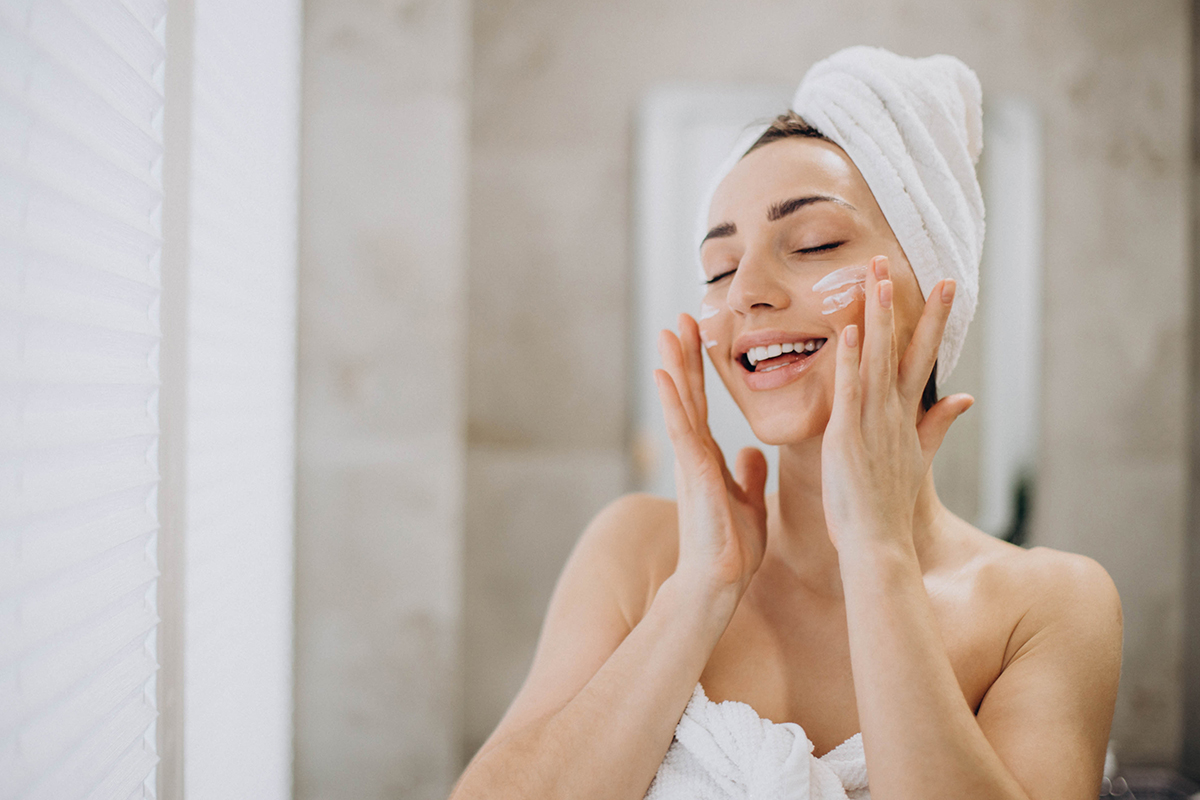Cosmetics that are tailored to your skin improve its condition, eliminate problems and keep it healthy. Let’s take a look at how to determine your skin type and choose cosmetics, avoiding common mistakes.
Skin type: what skin types are there and how to determine yours?
Experts have defined 4 types of skin: dry, oily, combined and normal. It is also possible to distinguish sensitive skin, which requires special care.
Dry skin
Dry skin is characterised by tightness, flaking and a tendency to wrinkle early. Such skin needs intensive moisturising and nourishing.
Oily skin
Oily skin is characterised by increased sebum production, which often leads to shine, enlarged pores and acne. Products that regulate sebum and reduce inflammation are important for this type.
Combination skin
Combination skin is a combination of dry and oily areas. Usually the T-zone (forehead, nose and chin) tends to be oily, while the other areas may be dry or normal. This type of skin requires a combination of products for different areas of the face.
Normal skin
Normal skin is considered to be the most balanced skin. It has no pronounced problems, but needs basic care to maintain a healthy condition.
Sensitive skin
Sensitive skin reacts to many external factors: climatic conditions, stress, aggressive ingredients in cosmetics. It is important to choose soft, hypoallergenic products without aggressive chemical components.
Choosing cosmetics depending on your skin type
Having determined your skin type, you can start choosing the right cosmetics. The key factor is the composition of products, as certain ingredients can have a beneficial effect, while others can provoke problems.
Cosmetics for dry skin
For dry skin, moisturising and nourishing ingredients are particularly important to help retain moisture and restore the skin’s protective barrier. Look for products containing hyaluronic acid, which has the ability to attract and retain water molecules, filling skin cells with moisture. Shea, jojoba or avocado oils restore the lipid barrier and prevent moisture loss. Ceramides help to restore the skin’s defence function and retain moisture. Avoid products high in alcohols as they can aggravate dry skin.
Cosmetics for oily skin
Oily skin needs cosmetics that control sebum production and prevent clogged pores. Choose products containing salicylic acid: it helps to clean pores, reduces inflammation and fights acne. Niacinamide regulates sebum production and improves skin texture. Clay (e.g. kaolin or bentonite) helps to mattify the skin and remove excess oil without drying it out. It is important to avoid comedogenic products (products that clog pores).
Cosmetics for combination skin
Combination skin needs a balanced treatment that moisturises dry areas and controls oiliness in the T-zone. This can be done by using different products for different areas of the face or by choosing all-purpose products. A good ingredient for combination skin is allantoin, which soothes irritated skin and moisturises dry areas. Vitamin C has antioxidant properties and helps to even out skin tone. Zinc regulates sebum production and reduces inflammation. Try using moisturisers for cheeks and lighter mattifying products for the T-zone.
Cosmetics for normal skin
Normal skin does not require special products, but it is important to keep it balanced. Use mild cleansers and moisturisers containing panthenol, which soothes the skin and keeps it healthy. Aloe vera extracts have moisturising and soothing properties. Antioxidants are needed to protect against the effects of free radicals. Avoid using aggressive products to avoid disturbing the skin’s natural balance.
Cosmetics for sensitive skin
Sensitive skin requires gentle care. Choose hypoallergenic products without fragrances and aggressive chemical ingredients. Suitable ingredients include chamomile or calendula extract, which have soothing and anti-inflammatory properties. Centella asiatica helps to revitalise the skin and reduces redness. Probiotics improve the skin’s microbiome and boost its defences.
Choosing the right cosmetics for your skin is not only a matter of beauty, but also of health. It is important to carefully study the composition of products and test them before regular use.


